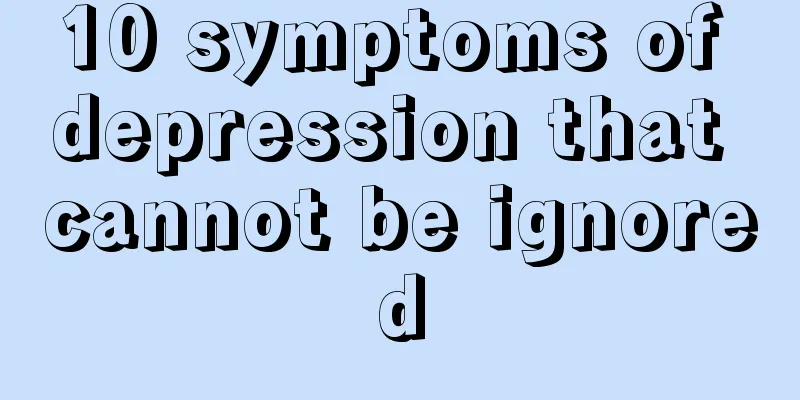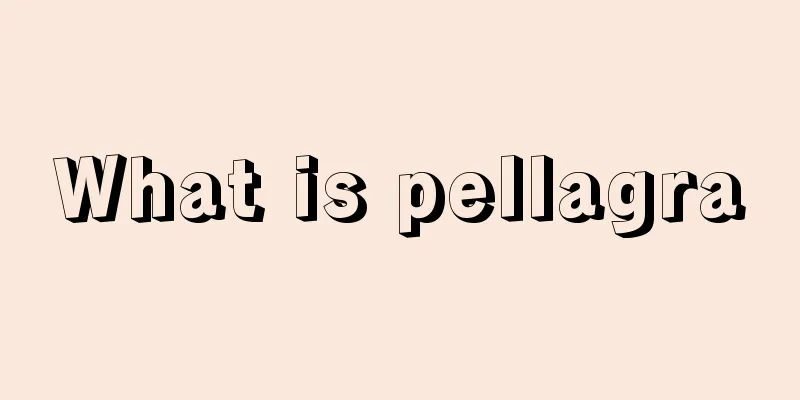10 symptoms of depression that cannot be ignored

|
1. Depression can range from mild bad mood to sadness, pessimism, and despair: The patient feels heavy-hearted, life is meaningless, he cannot be happy, he is depressed, his days are long like years, he is in unbearable pain and cannot extricate himself. Some patients may also experience anxiety, irritability, and nervousness. 2. Loss of interest is one of the common symptoms of depression: Loss of enthusiasm and pleasure in previous life and work, and loss of interest in everything. They are unable to experience the joy of family life, are indifferent to their previous hobbies, often live alone, alienate themselves from relatives and friends, and avoid socializing. Patients often complain of "no emotions", "emotional numbness", and "can't be happy anymore". 3. Loss of energy, fatigue, difficulty in washing, dressing and other daily chores, and inability to do them: Patients often use terms like "mental breakdown" or "deflated ball" to describe their condition. 4. Low self-evaluation: Patients tend to excessively belittle their own abilities, and view their present, past and future with a critical, negative and negative attitude. They think this is not good and that is not right, and they describe themselves as worthless and their future as bleak. Strong sense of self-blame, guilt, uselessness, worthlessness, and helplessness. In severe cases, self-blame and hypochondriasis may occur. 5. The patient is in a state of marked, persistent, and widespread depression: Difficulty concentrating, memory loss, slow thinking, blocked thinking, slow movements, but some patients show restlessness, anxiety, tension and agitation. 6. Negative and pessimistic: They are extremely painful, pessimistic, and desperate inside, feeling that life is a burden and not worth lingering on, and seek relief through death, which may lead to strong suicidal thoughts and behaviors. 7. Physical or biological symptoms: Depressed patients often have biological symptoms such as loss of appetite, weight loss, sleep disorders, sexual dysfunction and diurnal mood fluctuations. These symptoms are very common, but not present in every case. 8. Loss of appetite and weight loss: Most patients have symptoms of loss of appetite and poor digestion. Delicious food is no longer tempting. Patients have no appetite or find food tasteless, often accompanied by weight loss. 9. Sexual dysfunction: Decreased libido may occur in the early stages of the disease, men may suffer from impotence, and female patients may experience loss of sexual desire. 10. Others: Hallucinations, depersonalization, derealization, obsessive-compulsive and phobic symptoms may also occur during depressive episodes. Due to the significant slowdown of thought association and memory decline, the cognitive function of elderly patients can be easily affected, resulting in depressive pseudo-alzheimer's disease. |
<<: 6 tips for teeth whitening to make your smile brighter
>>: 8 small actions in the morning to keep you in good condition for the whole day
Recommend
Is thyroid cancer serious? Will thyroid cancer spread?
Thyroid cancer is highly malignant and serious, b...
What food is more effective for breast reduction?
Breast enhancement has always been a hotly debate...
Can Band-Aids be used after they expire?
Speaking of Band-Aids, everyone must be familiar ...
What factors lead to the increased incidence of gastric cancer?
The incidence of gastric cancer is relatively hig...
What is aortic valve calcification and regurgitation?
Aortic valve calcification and regurgitation are ...
What are the effects of Yunma Oil Cream?
Many people are troubled by scarred skin, which a...
Harm of cooking fumes on the skin
In real life, many women are reluctant to enter t...
Why does gastritis affect absorption
In real life, gastritis is a relatively common st...
Methods and effects of steaming bananas
Many of my friends like to eat bananas, and banan...
Does baking soda often contain small amounts of sodium chloride?
Speaking of baking soda, many people are familiar...
What are the best plants for indoor potted plants?
Indoor potted plants are very important for peopl...
Folk tips to stop snoring
Snoring is a common phenomenon among men, especia...
Sequelae of two-thirds gastrectomy
Nowadays, people are very busy every day and face...
How to prevent liver cancer better? To prevent liver cancer, we need to establish 5 lines of defense
How to prevent liver cancer? Prevent hepatitis vi...
What exercises can you do if you have bile duct cancer
Cholangiocarcinoma is literally a type of cancer,...









